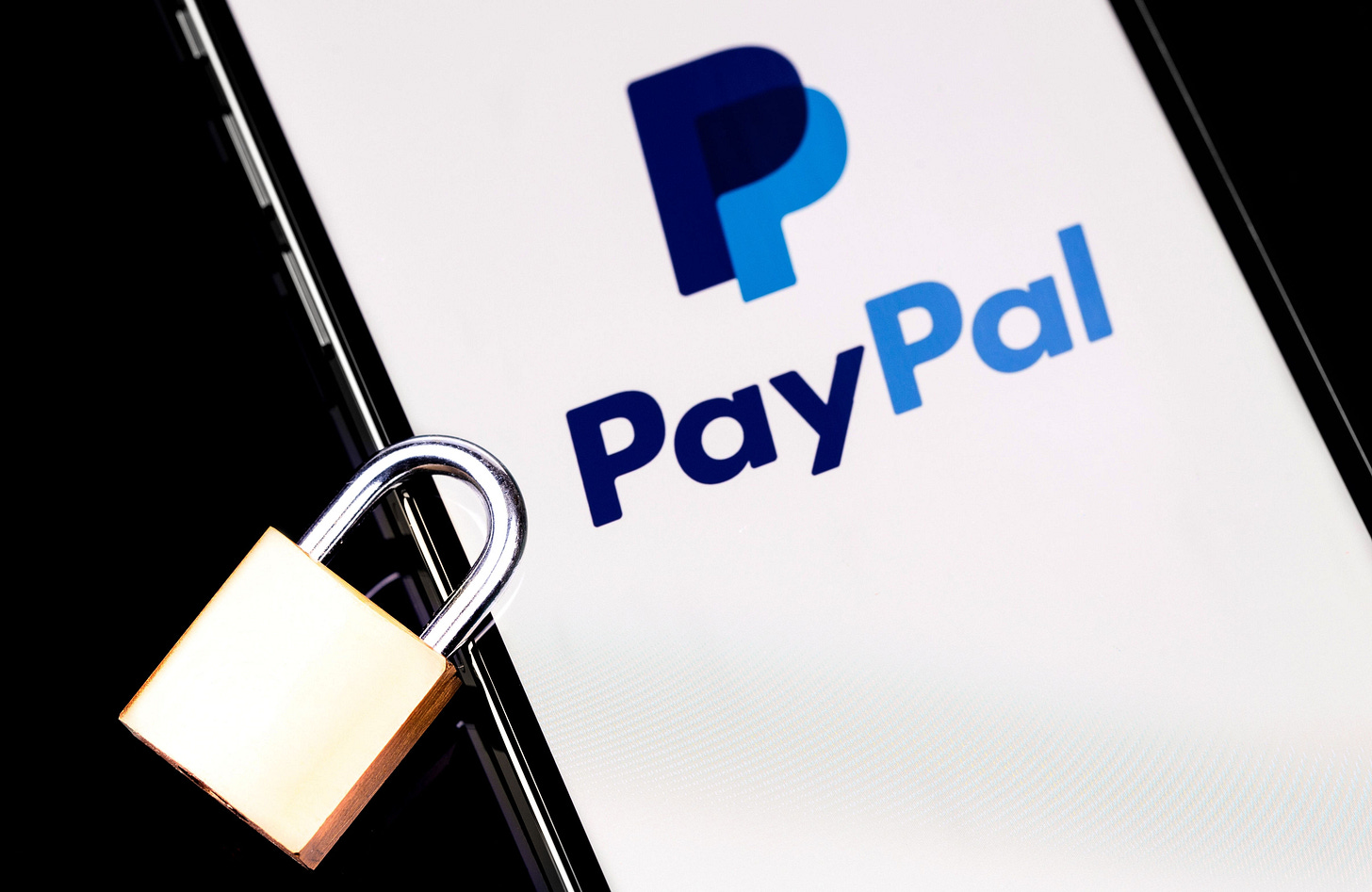E-Pluribus | December 15, 2022
Watch your language; misinformation about misinformation; and PayPal's strange transformation.
A round-up of the latest and best writing and musings on the rise of illiberalism in the public discourse:
Gary Abernathy: Serious about bridging our divide? Here’s some language to avoid.
Words may not break bones like sticks and stones, but can be hurtful nonetheless while turning off those we are trying to influence or convert. For those who wish to truly bring down the temperature of public discourse on divisive and knotty issues like abortion, guns, and gender, Gary Abernathy in the Washington Post has some ideas.
Anyone sincerely interested in bridging our great political divide should consider modifying how they discuss the most contentious topics. A good first step would be avoiding some of the most accusatory and divisive language — the conversation-stoppers. Every individual’s beliefs are unique, of course, and each of us can only do our best to appreciate differing opinions, but here’s where I, at least, would begin:
Abortion
People who oppose abortion generally share an honest belief that human life begins at conception and is entitled to legal protections. Language that opponents should avoid: calling them patriarchal Bible-thumpers trying to control someone else’s body or claiming that they care more about lumps of tissue than the lives of women.
People who support the right to abortion sincerely believe that the decision on whether to have a child is up to the pregnant woman herself, sometimes in consultation with a doctor. They generally believe that a fetus does not meet the scientific or legal definition of a human being, and that no one should be forced to give birth. Language that opponents should avoid: referring to them as murderers or baby-killers.
Read it all.
Sarah Haider: The Twitter Files and the Sinister Label of "Misinformation"
Writing at her Substack, Sarah Haider examines some of the findings from the Twitter Files released by new owner Elon Musk. Too often, Haider argues, the misinformation label has been abused and used to suppress information rather than for exposing even questionable and possibly false ideas to the light and let the public draw its own conclusions.
There are many common beliefs that are, for various reasons, unsayable. Perhaps they are unkind, perhaps they are uncouth, perhaps there is political pressure to deny them. Many of us who delve into contentious topics experienced strange behavior on the platform. Privately, we discussed the suppression, theorizing on the mechanisms and which tweet might have triggered it. Few would speak about this experience publicly, however, fearing (justifiably) that it only made them appear paranoid.
In the famed parable, “everyone knew” that the emperor was wearing no clothes. But such private knowledge is nearly useless in political discourse—what is unsayable is also unactionable. No intellectual who cares about their social status can refer to the implications of a nudist emperor, no theorist can devise ways to adequately clothe future royalty, no politician can regulate against indecent exposure. When the child said it out loud, however—the spell was broken. Everyone knew that everyone else also knew, and that is the point when private knowledge became public knowledge. This will be the legacy of the Twitter Files.
[. . .]
The answer is that “lie” and “falsehood” are inflexible—either something is true, or it isn’t. Misinformation, however, doesn’t have to be a lie or a falsehood. The truth can be misinformation too—provided it is “misleading”. In other words, that it might lead one to a conclusion that some authority believes is wrong to believe (either factually, morally, or in some other sense).
[F]or a time the hypothesis that COVID-19 was accidentally leaked from a lab was widely decried as a crackpot conspiracy theory. As we already “knew” the theory was crazy, no debate was necessary—and indeed, could be harmful as it might “mislead” people into a bad (and politically difficult) conclusion. Therefore, social media companies began actively suppressing discussion of the issue on their platforms.
Luckily, they were not entirely effective—the debate continued despite initial setbacks, and now what we “know” about COVID origins is in dispute. The lab leak hypothesis is no longer considered—even by the federal government—as off the table. If, in the end, the lab leak turns out to be the real story, what would that say about the censors? Were they protecting us against “misinfo”, or were they purveyors of “misinfo” themselves?
Read the whole thing.
Rupa Subramanya: What the Hell Happened to PayPal?
Lately, PayPal has been taking the “pal” out of PayPal by treating some of its customers as foes instead. At Bari Weiss’s newly renamed The Free Press, Rupa Subramanya reports on the increasingly arbitrary and intrusive rules the company is instituting to exert control over customers who simply want an easy and reliable way to transact business online.
When they launched PayPal, in December 1998, the founders imagined themselves connecting people to the global economy by sidestepping the hefty fees charged by credit-card companies and the inflationary policies of poorly run governments. Early PayPal users had Palm Pilots, and they would beam money from their devices to anyone with an email address. It was especially popular among eBay users.
“PayPal will give citizens worldwide more direct control over their currencies than they ever had before,” Thiel said at a company meeting, in late 1999. “It will be nearly impossible for corrupt governments to steal wealth from their people through their old means, because if they try the people will switch to dollars or pounds or yen, in effect, dumping the worthless local currency for something more secure.”
Since those early heady days, PayPal has amassed 429 million active accounts. Fifty-eight percent of Americans use PayPal, and in 2021, there were 19.3 billion PayPal transactions. It now has a market valuation of $84 billion.
But the company that was meant to liberate countless individuals is becoming something else.
Increasingly, it is becoming a police officer. It is deciding what is right and wrong, who gets to be heard, who is silenced. It is locking out of the financial system those people or brands that have slipped outside the parameters of acceptable discourse, those who threaten the consensus of the gatekeepers. The consensus is hard to articulate; it is an ideology lacking clearly defined ideological contours. But the tenets of that consensus are unmistakable: the new progressive politics around race and gender are a force for good, the Covid lockdown was just, the war in Ukraine is noble, and an unfettered exchange of ideas and opinions is an unacceptable threat to all of the above.
Read it all here.
Around Twitter
Author and social scientist Charles Murray comments on his evolution on the indispensability of religion:
Shadi Hamid introduces a new essay in a Tweet thread (excerpts here):
And finally, I’ve got dibs on the “Donald Trump 2020 Presidential Runner-up” card!










